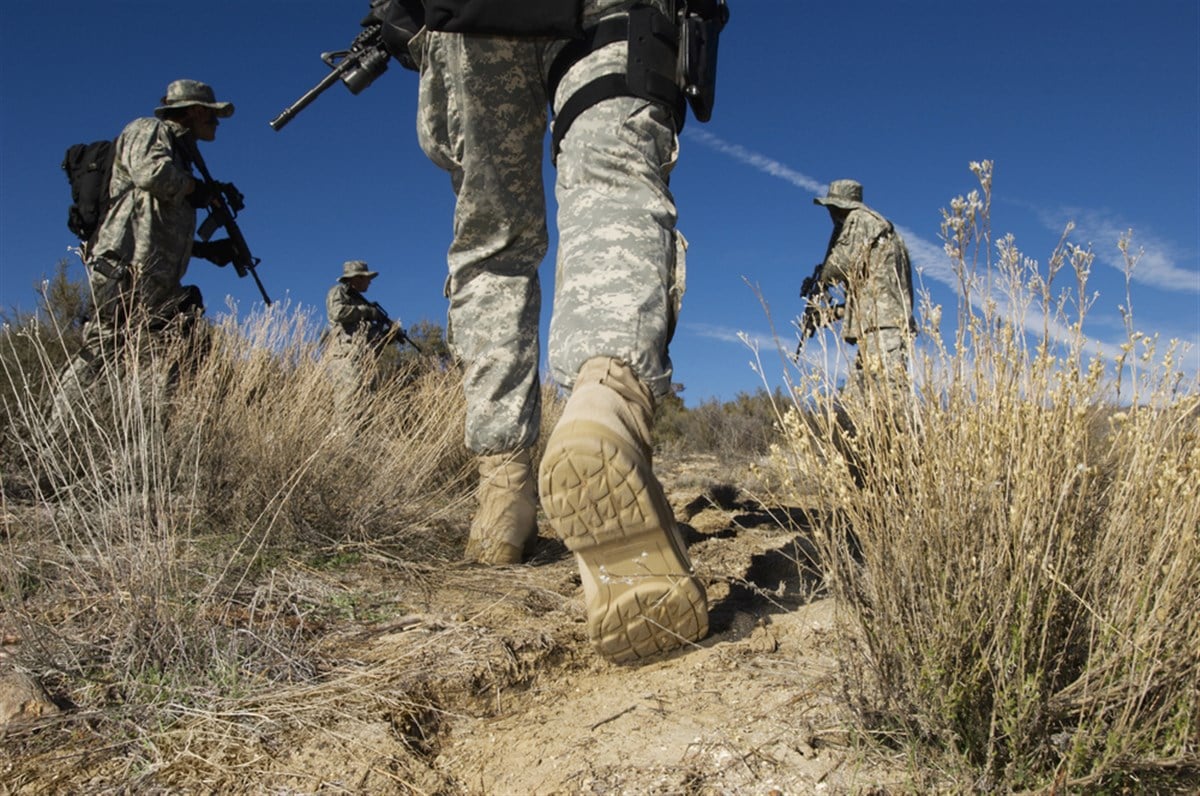Financial News
Ferring Adds Three New Studies to Non-Muscle Invasive Bladder Cancer Clinical Trial Program With ADSTILADRIN® (nadofaragene firadenovec-vncg)
- Expanded clinical trial program with ADSTILADRIN starts up in the United States
- Current clinical trial program of five multi-year studies to evaluate ADSTILADRIN demonstrate Ferring’s commitment to improve outcomes for patients across the spectrum of urothelial cancers
- Research will enlarge the body of evidence for ADSTILADRIN, the first and only FDA-approved intravesical non-replicating gene therapy for NMIBC
Ferring Pharmaceuticals today announced start up of new studies in the United States (U.S.) for three new ADSTILADRIN in BLadder cancEr (ABLE) clinical trials in patients with non-muscle invasive bladder cancer (NMIBC) with plans to expand select clinical trials outside of the U.S. later this year. ADSTILADRIN was approved by the U.S. Food and Drug Administration (FDA) in December 2022 for adult patients with high-risk Bacillus Calmette-Guérin (BCG)-unresponsive NMIBC with carcinoma in situ (CIS) with or without papillary tumors.
“ADSTILADRIN is the foundation of Ferring's leadership mission in the uro-oncology therapeutic category and our ambition is for it to become the new standard of care and the backbone therapy for patients across the NMIBC disease spectrum,” said Bipin Dalmia, Senior Vice President, Global Head, Uro-Oncology Franchise, Ferring Pharmaceuticals. “Embarking on a broad research and geographic expansion program is yet another demonstration of our commitment to the uro-oncology community, together with our significant manufacturing investments that recently enabled full availability of ADSTILADRIN to every appropriate U.S. patient who needs it.”
The addition of three new ABLE clinical trials to the existing multi-year ADSTILADRIN studies program will expand the body of evidence for the intravesical non-replicating gene therapy:
- ABLE-22: A Phase 2, randomized, multi-center, open label clinical study to evaluate the safety and efficacy of ADSTILADRIN alone or in combination with chemotherapy (gemcitabine and docetaxel) or immunotherapy (pembrolizumab) in adult patients with high-grade BCG-unresponsive NMIBC.
- ABLE-32: A Phase 3b randomized, controlled clinical study to evaluate the safety and efficacy of ADSTILADRIN versus observation in patients with intermediate-risk NMIBC.
- ABLE-42: A Phase 4, multi-center, open-label clinical study to evaluate the efficacy of retreatment with ADSTILADRIN in previously-treated patients with high-grade BCG-unresponsive NMIBC with CIS with or without papillary tumors who had not responded to the product at the first three-month assessment.
“ADSTILADRIN is an established monotherapy treatment option for patients with BCG-unresponsive NMIBC disease, an area where patients’ treatment options have been severely limited for decades,” said Pierre-Yves Berclaz, M.D., Ph.D., Executive Vice President and Chief Science and Medical Officer, Ferring Pharmaceuticals. “These new trials underscore Ferring's commitment to create solutions for patients by enlarging the body of evidence for this novel nonreplicating gene therapy.”
The ADSTILADRIN clinical trial program includes two additional studies, the first being ABLE–41, a U.S. Real-World Evidence (RWE) Study announced in September 2023 and the second being a bridging study in Japan. The ABLE-22, ABLE-32 and ABLE-42 clinical trials announced today are yet another milestone for this comprehensive research program.
Additional ongoing studies in the ADSTILADRIN clinical trial program include:
- ABLE-41 (NCT06026332): An ongoing, non-interventional RWE study following NMIBC patients aged 18 years or older with high-risk, BCG-unresponsive NMIBC who are being treated with ADSTILADRIN in a clinical setting and had not previously received this therapy in a clinical trial. The study is exploring early utilization, experiences, and outcomes of ADSTILADRIN in the routine care setting in these patients. The first patient was enrolled in September 2023.
- Japan Phase 3B Study (000381): Single arm bridging study of high grade, BCG-unresponsive NMIBC patients.
Healthcare providers in the U.S. can learn more about the ADSTILADRIN clinical trial program by calling 1-888-FERRING (888-337-7464) and selecting option number one or emailing medqueriesus@ferring.com.
About ADSTILADRIN
ADSTILADRIN® (nadofaragene firadenovec-vncg) is the first and only FDA-approved intravesical non-replicating gene-therapy for the treatment of adult patients with high-risk Bacillus Calmette-Guérin (BCG)-unresponsive non-muscle invasive bladder cancer (NMIBC) with carcinoma in situ (CIS) with or without papillary tumors. It is a non-replicating adenovirus vector-based therapy containing the gene interferon alfa-2b, administered locally as a monotherapy by catheter directly into the bladder once every three months. The vector enters the cells of the bladder wall, releasing the active gene and causing the bladder’s cell walls to secrete high quantities of interferon alfa-2b protein, a naturally-occurring protein the body uses to fight cancer. This approach essentially turns the bladder wall cells into interferon microfactories, enhancing the body’s own natural defenses against the cancer.
ADSTILADRIN has been studied in a clinical trial program that includes 157 patients with high-grade, BCG-unresponsive NMIBC who had been treated with adequate BCG previously and did not see benefit from additional BCG treatment (full inclusion criteria published on clinicaltrials.gov: NCT02773849).1
About Non-Muscle Invasive Bladder Cancer (NMIBC)
NMIBC is a form of bladder cancer which is present in the superficial layer of the bladder and has not invaded deeper into the bladder or spread to other parts of the body.2 In the United States, bladder cancer is the seventh most common cancer, fourth among men3-4, and it is estimated that there will be approximately 83,190 new cases of bladder cancer in the U.S. in 2024.5 Historically, 75% of bladder cancer presents as NMIBC.6 In patients with high-risk NMIBC, intravesical BCG remains the first-line standard-of-care. However, more than 50% of patients who receive initial treatment with BCG will experience disease recurrence and progression within one year, with many developing BCG-unresponsive disease.5 Current treatment options for BCG-unresponsive patients are very limited, and National Comprehensive Cancer Network (NCCN) guidelines recommend cystectomy (partial or complete removal of the bladder).7
INDICATION
ADSTILADRIN is a non-replicating adenoviral vector-based gene therapy indicated for the treatment of adult patients with high-risk Bacillus Calmette-Guérin (BCG)-unresponsive non-muscle invasive bladder cancer (NMIBC) with carcinoma in situ (CIS) with or without papillary tumors.
IMPORTANT SAFETY INFORMATION
CONTRAINDICATIONS: ADSTILADRIN is contraindicated in patients with prior hypersensitivity reactions to interferon alfa or to any component of the product.
WARNINGS AND PRECAUTIONS:
- Risk with delayed cystectomy: Delaying cystectomy in patients with BCG-unresponsive CIS could lead to development of muscle invasive or metastatic bladder cancer, which can be lethal. If patients with CIS do not have a complete response to treatment after 3 months or if CIS recurs, consider cystectomy.
- Risk of disseminated adenovirus infection: Persons who are immunocompromised or immunodeficient may be at risk for disseminated infection from ADSTILADRIN due to low levels of replication-competent adenovirus. Avoid ADSTILADRIN exposure to immunocompromised or immunodeficient individuals.
DOSAGE AND ADMINISTRATION: Administer ADSTILADRIN by intravesical instillation only. ADSTILADRIN is not for intravenous use, topical use, or oral administration.
USE IN SPECIFIC POPULATIONS: Advise females of reproductive potential to use effective contraception during ADSTILADRIN treatment and for 6 months after the last dose. Advise male patients with female partners of reproductive potential to use effective contraception during ADSTILADRIN treatment and for 3 months after the last dose.
ADVERSE REACTIONS: The most common (>10%) adverse reactions, including laboratory abnormalities (>15%), were glucose increased, instillation site discharge, triglycerides increased, fatigue, bladder spasm, micturition (urination urgency), creatinine increased, hematuria (blood in urine), phosphate decreased, chills, pyrexia (fever), and dysuria (painful urination).
You are encouraged to report negative side effects of prescription drugs to FDA. Visit www.FDA.gov/medwatch or call 1-800-332-1088. You may also contact Ferring Pharmaceuticals at 1-888-FERRING.
Please click to see the full Prescribing Information.
About Ferring Pharmaceuticals
Ferring Pharmaceuticals is a privately-owned, research-driven, specialty biopharmaceutical group committed to building families and helping people live better lives. In the United States, Ferring is a leader in reproductive medicine and maternal health, and in areas of gastroenterology and orthopaedics. We are at the forefront of innovation in microbiome-based therapeutics and uro-oncology intravesical gene therapy. Our company was founded in 1950 and is headquartered in Saint-Prex, Switzerland. Ferring employs more than 7,000 people worldwide and markets its medicines in over 100 countries. Ferring USA is based in Parsippany, New Jersey, and employs more than 900 employees.
For more information, please visit www.ferringusa.com, call 1-888-FERRING (1-888-337-7464), or connect with us on LinkedIn, and X (Twitter).
References:
- ADSTILADRIN in Patients With High Grade, Bacillus Calmette-Guerin (BCG) Unresponsive Non-Muscle Invasive Bladder Cancer (NMIBC). Gov Identifier: NCT02773849. https://clinicaltrials.gov/ct2/show/NCT02773849.
- Boorjian SA, Alemozaffar M, Konety BR, et al. Intravesical nadofaragene firadenovec gene therapy for BCG-unresponsive non-muscle-invasive bladder cancer: a single-arm, open-label, repeat-dose clinical trial. Lancet Oncol 2021; 22: 107–17.
- Bladder Cancer Advocacy Network. Bladder Cancer Advocacy Network Responds to American Cancer Society’s 2024 Projections. Bladder Cancer Advocacy Network Responds to American Cancer Society's 2024 Projections – Bladder Cancer Advocacy Network (bcan.org), page last accessed: March 2024.
- American Cancer Society. Cancer Facts & Figures 2024 Report. Cancer Facts & Figures 2024, page last accessed: March 2024
- American Cancer Society. Cancer Facts & Figures 2024. Atlanta: American Cancer Society; 2024. https://www.cancer.org/cancer/bladder-cancer/about/key-statistics.html. Accessed April, 2024.
- Babjuk M, Burger M, Capoun O, European Association of Urology Guidelines on Non-muscle-invasive Bladder Cancer. Eur Urol. 2022 Jan;81(1):75-94.
- National Comprehensive Cancer Network. Bladder Cancer (Version 1.2024). www.nccn.org/professionals/physicians_gls/pdf/bladder.pdf. Accessed March 7, 2024.
More information is available at the following:
- Health Care Providers: If you are interested in ordering ADSTILADRIN, please visit www.ADSTILADRINHCP.com to either Request a Rep or follow the product ordering instructions outlined on the product website.
- Patients and Consumers: For more information about ADSTILADRIN, please visit ADSTILADRIN.com or call 1-888-FERRING (888-337-7464) and select option number one.
- Media: Members of the press can contact Carol Ready, Director, Brand Communications by phone at (973) 765-7307, or email at carol.ready@ferring.com.
View source version on businesswire.com: https://www.businesswire.com/news/home/20240415649389/en/
Contacts
Carol Ready
Director, Brand Communications
(973) 765-7307
carol.ready@ferring.com
More News
View More





Quotes delayed at least 20 minutes.
By accessing this page, you agree to the following
Privacy Policy and Terms Of Service.



